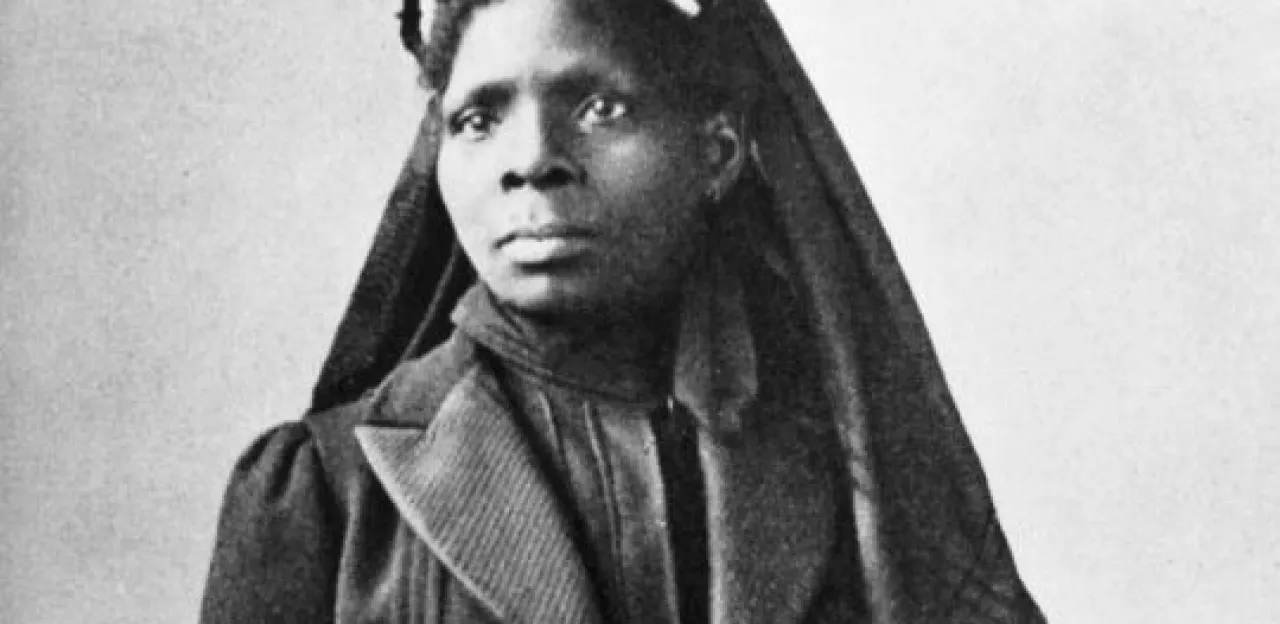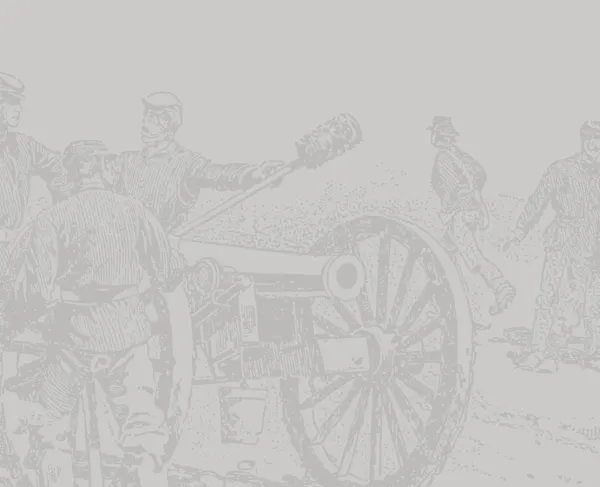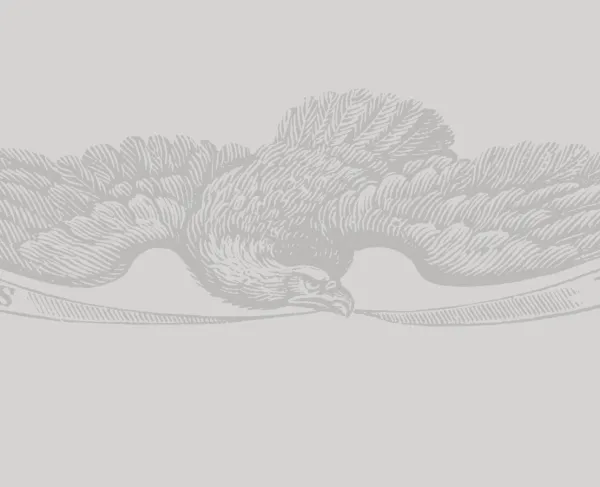“On St. Simon's Island - 1862“

Susie King Taylor was born into slavery in Georgia and was secretly taught to read and write by various teachers. In 1862, she and many other slaves escaped to freedom on St. Simon's Island off the southern Georgia coast, then occupied by Union troops. There she began to serve as an army nurse and worked with the 1st South Carolina Volunteers, a black regiment that was later reorganized into the 33rd U.S. Colored Regiment. After the war ended, she wrote a memoir of her experiences, which included the following reflections on her experiences.
NEXT morning we arrived at St. Simon's, and the captain told Commodore Goldsborough about this affair, and his reply was, "Captain Whitmore, you should not have allowed them to return; you should have kept them." After I had been on St. Simon's about three days, Commodore Goldsborough heard of me, and came to Gaston Bluff to see me. I found him very cordial. He said Captain Whitmore had spoken to him of me, and that he was pleased to hear of my being so capable, etc., and wished me to take charge of a school for the children on the island. I told him I would gladly do so, if I could have some books. He said I should have them, and in a week or two I received two large boxes of books and testaments from the North. I had about forty children to teach, beside a number of adults who came to me nights, all of them so eager to learn to read, to read above anything else. Chaplain French, of Boston, would come to the school, sometimes, and lecture to the pupils on Boston and the North.
About the first of June we were told that there was going to be a settlement of the war. Those who were on the Union side would remain free, and those in bondage were to work three days for their masters and three for themselves. It was a gloomy time for us all, and we were to be sent to Liberia. Chaplain French asked me would I rather go back to Savannah or go to Liberia. I told him the latter place by all means. We did not know when this would be, but we were prepared in case this settlement should be reached. However, the Confederates would not agree to the arrangement, or else it was one of the many rumors flying about at the time, as we heard nothing further of the matter. There were a number of settlements on this island of St. Simon's, just like little villages, and we would go from one to the other on business, to call, or only for a walk.
One Sunday, two men, Adam Miller and Daniel Spaulding, were chased by some rebels as they were coming from Hope Place (which was between the Beach and Gaston Bluff), but the latter were unable to catch them. When they reached the Beach and told this, all the men on the place, about ninety, armed themselves, and next day (Monday), with Charles O'Neal as their leader, skirmished the island for the "rebs." In a short while they discovered them in the woods, hidden behind a large log, among the thick underbrush. Charles O'Neal was the first to see them, and he was killed; also John Brown, and their bodies were never found. Charles O'Neal was an uncle of Edward King, who later was my husband and a sergeant in Co. E., U. S. I. Another man was shot, but not found for three days. On Tuesday, the second day, Captain Trowbridge and some soldiers landed, and assisted the skirmishers. Word having been sent by the mail-boat Uncas to Hilton Head, later in the day Commodore Goldsborough, who was in command of the naval station, landed about three hundred marines, and joined the others to oust the rebels. On Wednesday, John Baker, the man shot on Monday, was found in a terrible condition by Henry Batchlott, who carried him to the Beach, where he was attended by the surgeon. He told us how, after being shot, he lay quiet for a day. On the second day he managed to reach some wild grapes growing near him. These he ate, to satisfy his hunger and intense thirst, then he crawled slowly, every movement causing agony, until he got to the side of the road. He lived only three months after they found him.
On the second day of the skirmish the troops captured a boat which they knew the Confederates had used to land in, and having this in their possession, the "rebs" could not return; so pickets were stationed all around the island. There was an old man, Henry Capers, who had been left on one of the places by his old master, Mr. Hazzard, as he was too old to carry away. These rebels went to his house in the night, and he hid them up in the loft. On Tuesday all hands went to this man's house with a determination to burn it down, but Henry Batchlott pleaded with the men to spare it. The rebels were in hiding, still, waiting a chance to get off the island. They searched his house, but neglected to go up into the loft, and in so doing missed the rebels concealed there. Late in the night Henry Capers gave them his boat to escape in, and they got off all right. This old man was allowed by the men in charge of the island to cut grass for his horse, and to have a boat to carry this grass to his home, and so they were not detected, our men thinking it was Capers using the boat. After Commodore Goldsborough left the island, Commodore Judon sent the old man over to the mainland and would not allow him to remain on the island.
There were about six hundred men, women, and children on St. Simon's, the women and children being in the majority, and we were afraid to go very far from our own quarters in the daytime, and at night even to go out of the house for a long time, although the men were on the watch all the time; for there were not any soldiers on the island, only the marines who were on the gunboats along the coast. The rebels, knowing this, could steal by them under cover of the night, and getting on the island would capture any persons venturing out alone and carry them to the mainland. Several of the men disappeared, and as they were never heard from we came to the conclusion they had been carried off in this way.
The latter part of August, 1862, Captain C. T. Trowbridge, with his brother John and Lieutenant Walker, came to St. Simon's Island from Hilton Head, by order of General Hunter, to get all the men possible to finish filling his regiment which he had organized in March, 1862. He had heard of the skirmish on this island, and was very much pleased at the bravery shown by these men. He found me at Gaston Bluff teaching my little school, and was much interested in it. When I knew him better I found him to be a thorough gentleman and a staunch friend to my race.
Captain Trowbridge remained with us until October, when the order was received to evacuate, and so we boarded the Ben-De-Ford, a transport, for Beaufort, S. C. When we arrived in Beaufort, Captain Trowbridge and the men he had enlisted went to camp at Old Fort, which they named "Camp Saxton." I was enrolled as laundress.
The first suits worn by the boys were red coats and pants, which they disliked very much, for, they said, "The rebels see us, miles away."
The first colored troops did not receive any pay for eighteen months, and the men had to depend wholly on what they received from the commissary, established by General Saxton. A great many of these men had large families, and as they had no money to give them, their wives were obliged to support themselves and children by washing for the officers of the gunboats and the soldiers, and making cakes and pies which they sold to the boys in camp. Finally, in 1863, the government decided to give them half pay, but the men would not accept this. They wanted "full pay" or nothing. They preferred rather to give their services to the state, which they did until 1864, when the government granted them full pay, with all the back pay due.
I remember hearing Captain Heasley telling his company, one day, "Boys, stand up for your full pay! I am with you, and so are all the officers." This captain was from Pennsylvania, and was a very good man; all the men liked him. N. G. Parker, our first lieutenant, was from Massachusetts. H. A. Beach was from New York. He was very delicate, and had to resign in 1864 on account of ill health.
I had a number of relatives in this regiment, --several uncles, some cousins, and a husband in Company E, and a number of cousins in other companies. Major Strong, of this regiment, started home on a furlough, but the vessel he was aboard was lost, and he never reached his home. He was one of the best officers we had. After his death, Captain C. T. Trowbridge was promoted major, August, 1863, and filled Major Strong's place until December, 1864, when he was promoted lieutenant-colonel, which he remained until he was mustered out, February 6, 1866.
In February, 1863, several cases of varioloid broke out among the boys, which caused some anxiety in camp. Edward Davis, of Company E (the company I was with), had it very badly. He was put into a tent apart from the rest of the men, and only the doctor and camp steward, James Cummings, were allowed to see or attend him; but I went to see this man every day and nursed him. The last thing at night, I always went in to see that he was comfortable, but in spite of the good care and attention he received, he succumbed to the disease.
I was not in the least afraid of the small-pox. I had been vaccinated, and I drank sassafras tea constantly, which kept my blood purged and prevented me from contracting this dread scourge, and no one need fear getting it if they will only keep their blood in good condition with this sassafras tea, and take it before going where the patient is.





